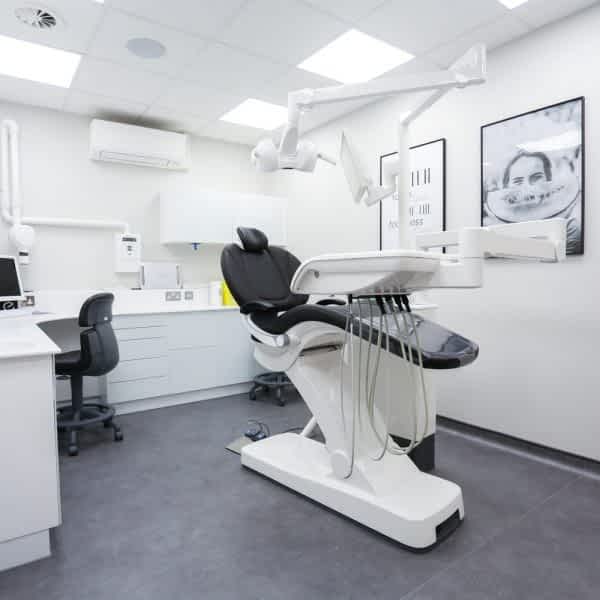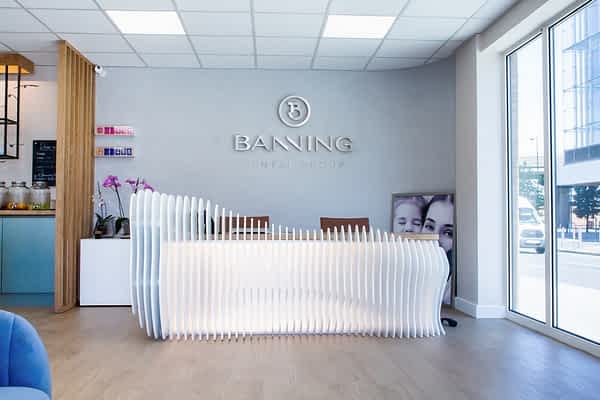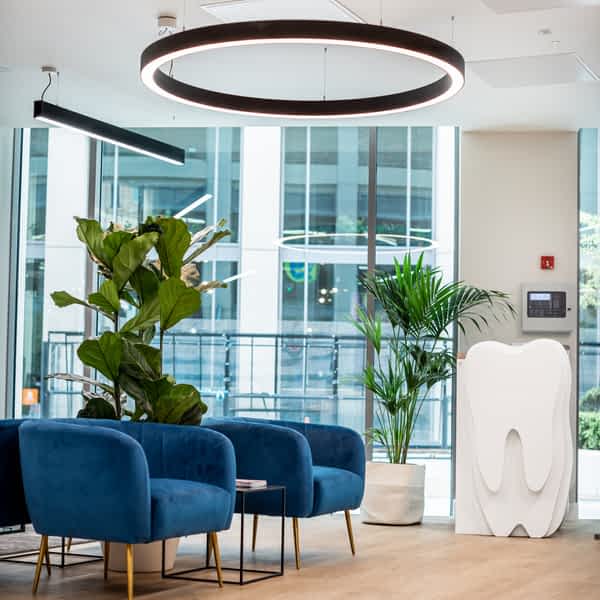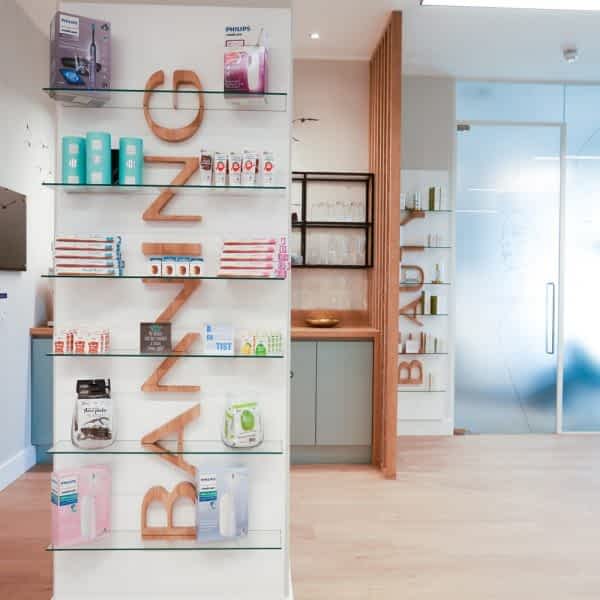
Trabecular Dental Implants: Advanced Healing Power
Dental Implants have long been considered the modern-day solution for missing teeth. With a wide range of benefits and advantages over dentures and other prosthetics its easy to understand why most people would choose a fixed implant treatment route.
Both in terms of aesthetics and functionality, dental implants are the closest you can get to natural teeth. They restore normality to chewing and eating, where you may have avoided using an entire area of your mouth previously. They can be cleaned and treated exactly the same as you would your own teeth and you can live without fear of embarrassing slippages whilst speaking.
However, now we are taking the world of implantology to the next level. Thanks to our partnership with ZimVie, pioneers in musculoskeletal healthcare innovation, we are now able to offer Trabecular Dental Implants to our patients.
Trabecular Dental Implants are the next generation of implant solutions, which has the capacity to improve the implant treatment experience for both patients and clinicians alike. Using the latest digital technology and harnessing the benefits of porous Tantalum metal, Trabecular Dental Implants promise accelerated treatment times, greater accuracy and precision and improved success rates when compared to any other implant procedure.
Let’s take a look at some of the advantages.
The Advantages of Trabecular Dental Implants
Trabecular metal has been used in the orthopedic world for many years. It is a unique, highly porous biomaterial that imitates the shape, elasticity, cellular structure and weight bearing characteristics of natural bone. With 20 years of proven clinical use in orthopaedic surgery e.g hip and knee replacements, we are now able to take advantage of its rapid bone ingrowth properties and stability within the realm of dentistry.
So, you might wonder what benefit this has for you as a patient, especially if you have been considering Dental Implants. Here are just a few reasons why we consider this to be the Rolls Royce of implant solutions.
Rapid Recovery
Trabecular dental implants have been proven to offer faster healing and earlier bone foundation, due to its BioBoost Effect. The faster an implant is able to integrate with the body, the better chance of long term success there is.
Both the properties and the design of the Trabecular dental implants encourage the stimulation of bone growth. When introducing any foreign object within to the body during medical intervention, there is always the risk of rejection. In the case of Trabecular technology, studies show that since the body recognises the material as a biological match, the surrounding bone and soft tissues are encouraged to grow, integrate and accept the implant as though it was a natural part of our physiology.
Another important feature to note of Tantalum metal is its anti-bacterial properties. Infection is a common reason for implant failure, so any breakthroughs made to reduce the risk of infection can only be beneficial to the patient.
Improvements in the implant material combined with the latest digital technology, makes accurate and predictable implant placement possible. With the navigator systems open architecture along with treatment planning software and surgical guides, clinicians can place a provisional restoration immediately following implant surgery. This means it’s possible for us to give our patients aesthetic and functional replacement teeth, within the same day.
These features give Trabecular metal implants a significant clinical advantage. Final restorations can be fitted in a matter of weeks, rather than months, thanks to the accelerated acceptance of the implant. For anyone suffering with the consequences of missing teeth, this is a welcome answer to years of discomfort and frustration.
Risk Management
Whilst dental implants have been an option for many years, there are some individual cases that sadly run too many risks of rejection to qualify for this particular type of treatment.
Until now, patients suffering with diabetes, rheumatoid arthritis, prior oral infection or those with poor bone quality due to the effects of cancer treatment had much lower success rates of healthy implant integration using conventional titanium implants.
With Trabecular Metal Implants, we can now open up the possibility of implant treatment to even those suffering with poor bone density.
Studies demonstrate that these implants perform well, even in high risk cases:
• 100% success after one year in postablative cancer patients
• 97.2% success after three years in patients with systemic disease
• Faster bone healing around Trabecular Metal Implants than traditional implants in diabetic and osteopenic patients.
This means that we can now offer dental implant technology to more of our patients than ever before, even if they were previously considered unsuitable for implant treatment.
Implant Revisions
Typically, patients that have experienced a failed implant placement are at a higher risk for a subsequent failed implant. This has therefore made it undesirable to revise an implant placement a second or third time as the outcome is likely to the same, unless the conditions can be improved.
With Trabecular metal implants the bio-boost technology offers enhanced bone healing compared to conventional titaniuim implants. This makes them an excellent alternative in implant revision treatments. Whilst the original placement may not have been a success, it does not rule out implants as a solution for patients.
We encourage anyone who has previously experienced problems with implant acceptance to speak to us about Trabecular Dental Implants. We may be able to provide the right solution by adopting this specific implant technology.
The problem with missing teeth
We understand that missing teeth can play havoc with even the most simple of everyday activities and feelings of low self esteem:
Appearance
A missing tooth, especially at the front of our mouths can cause a dramatic change to our features. The gap that it creates, can leave us feeling unattractive, self-conscious and embarrassed. The absence of a tooth can contribute to a sunken, aged appearance. When the facial muscles and skin lose their support structure, it can accelerate the formation of wrinkles and lines.
Chewing and eating
Are you avoiding certain foods because they have become too difficult to chew. Our teeth are the starting point of our digestion and nutrition. Not being able to chew comfortably may cause you to stop enjoying the foods you love and that your body needs.
Speaking
Certain sound become infinitely more difficult to pronounce correctly when one or more teeth are missing. This not only affects our ability to communicate but can also cause us to feel socially uncomfortable.
Dental Health
It can be frustrating when food regularly becomes stuck in the gaps left by missing teeth, but its also likely to lead to a buildup of bacteria and plaque, onset of tooth decay and an increased risk of gum disease.
If you are suffering with any of these issues, we would love to speak to you to see if the advanced healing technology of Trabecular Dental Implants might be the answer to get your smile back, once and for all.








